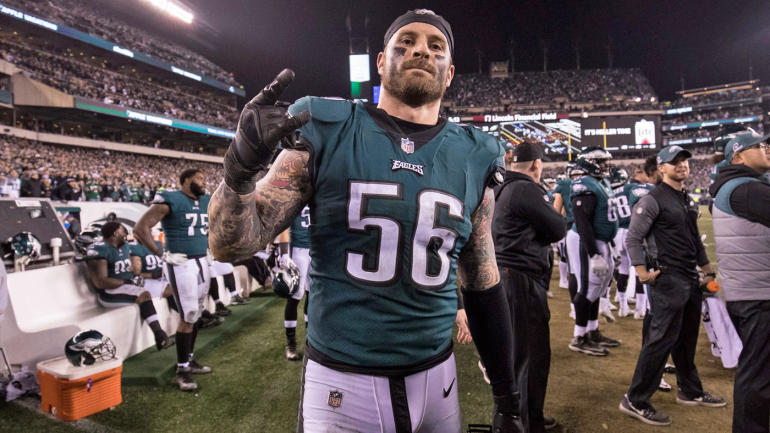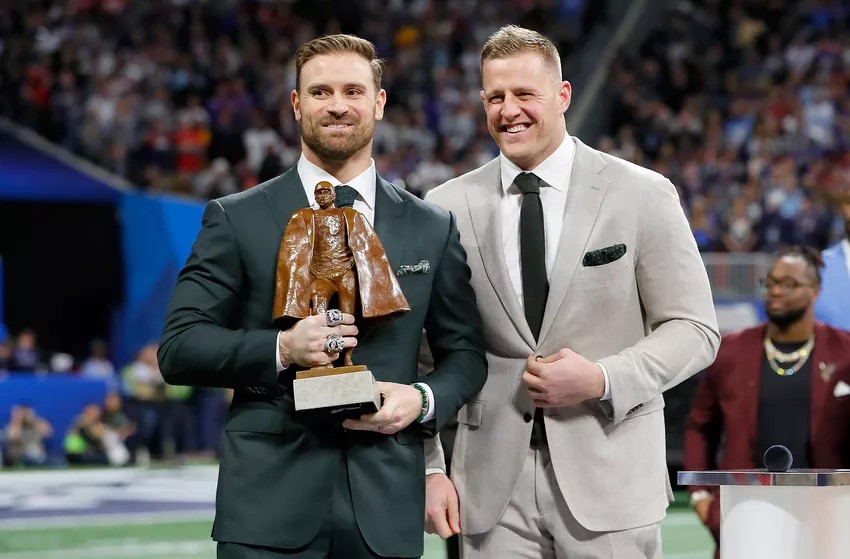
Another high-profile NFL player is pointing out the arbitrary, hypocritical nature of cannabis regulation in North America’s biggest professional sports league.
Defensive End and two-time Super Bowl champion Chris Long announced his retirement on Saturday, May 18 with a post on his social media accounts. Highly-respected and well-liked by teammates, Long won back-to-back titles with the New England Patriots in 2017 and the Philadelphia Eagles in 2018.
It appears that now he is championing a different cause: responsible weed policy in the NFL.
The NFL vs Cannabis
On Wednesday, Long appeared on The Dan Patrick Show on ESPN and admitted to using marijuana regularly throughout his 11-year career:
“I’m not a dry snitch, I’m not going to put a percentage on how much the league smokes, but I certainly enjoyed my fair share on a regular basis throughout my career,” Long said.
He explained that cannabis was much less harmful than other drugs players consume to ease the pain of taking brutal hits from the largest, most powerful men in the country on a weekly basis for years.
“If not for that, I’m not as capable of coping with the stresses of day-to-day NFL life,” he said. “It is far less harmful than alcohol. It is far less harmful than tobacco…we should be headed to a place where we allow players to use what I wouldn’t even call drugs. It’s far less dangerous than players guzzling a fifth of alcohol and going out after a game.” Long’s sentiment is one echoed by many other high-profile NFL players, including Tiki Barber, Ricky Williams, and Warren Sapp.
During his interview, Long also highlighted the asinine nature of the NFL’s drug testing policy. Players are tested once per year at a pre-arranged time, making the tests easy to fool – players simply quit smoking in advance of the test, then resume once they pass.
“In that month or two that you stop, you’re going to reach for the sleeping pills, you’re going to reach for the painkillers and you’re going to reach for the bottle a little bit more…If you’re serious about players not using, you’d be testing more often. I hope they go the opposite direction and just kind of realize how arbitrary that one test is,” Long said.
Leadership on and off the Field

Aside from his success on the field, Long is considered one of the most charitable to ever play the game. In 2015, he established a foundation, Waterboys, to help build wells to provide clean drinking water in East Africa. The organization has provided access to clean water for over 200,000 people to date. In 2017, he donated his entire $1 million base salary to various charities helping to provide educational equality to kids in the three cities he’s played in: Philadelphia, Boston, and St. Louis.
Thanks to these and other efforts, he was named the Walter Payton Man of the Year in 2018. The annual NFL award is given to players who show leadership and generosity both on and off the field.
It is yet to be determined how much of a role Long will play in cannabis advocacy going forward, or whether the NFL will loosen its outdated, nonsensical policy towards the plant. On Monday, May 20, the NFL Players’ Union and the league agreed on a new initiative to improve pain management and mental health for players. Many believe this could lead to a lightening of the league’s policy on THC, which is already among the most restrictive of any pro sports league in the world.
For now, players like Chris Long will have to continue using their platform to point out the foolishness of the NFL’s drug policy and hope their voices become a catalyst for change.



